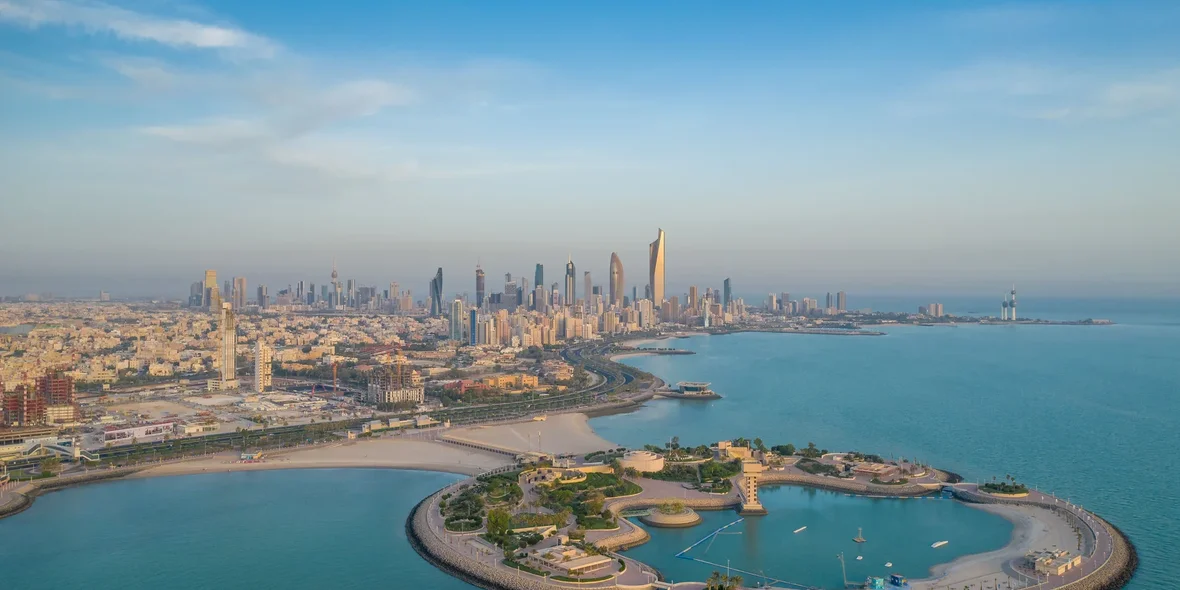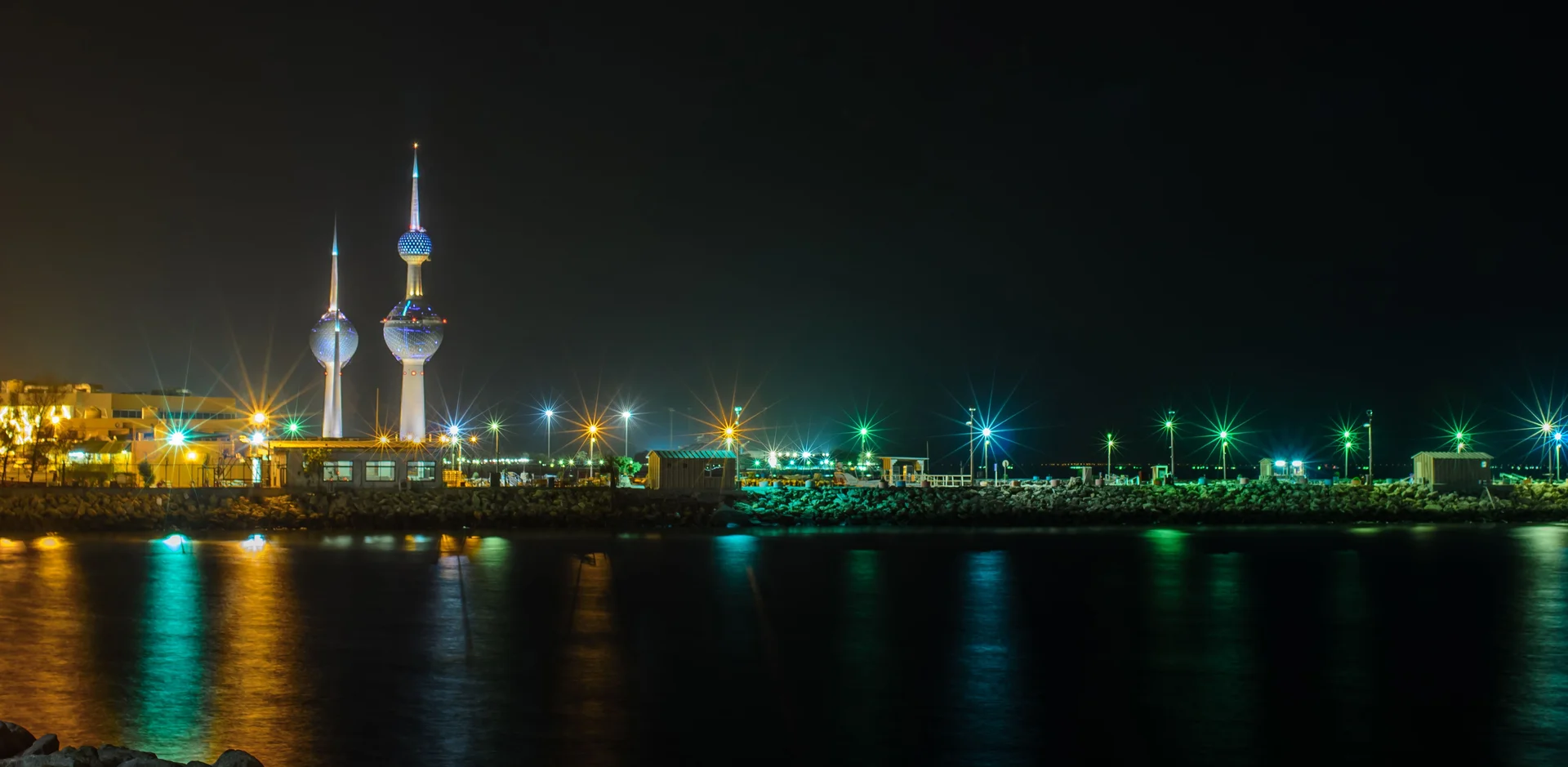
Kuwait Real Estate Market Reached $9 Billion in 2024: Analysis and Forecasts
In 2024, the real estate market in Kuwait showed significant growth: the total value of transactions increased by 34% compared to the previous year, reaching 3.73 billion Kuwaiti dinars ($9 billion).
Kuwait, with its limited land area and high population density, faces constant demand for housing. According to the National Bank of Kuwait, in the third quarter of 2024, residential property sales amounted to 384 million Kuwaiti dinars ($1.24 billion), the highest figure in the past two years. This is despite the fact that Kuwait ranks among the top ten countries with the highest housing prices.
Transaction Dynamics in 2024
According to the Kuwaiti Ministry of Justice, the total number of real estate transactions in 2024 amounted to 4,950, which is an 11.4% increase compared to 4,442 transactions in 2023.
Distribution of Transactions by Property Type
- Residential. Transactions worth 1.5 billion Kuwaiti dinars ($4.86 billion), which represents a significant portion of the total volume.
- Commercial. Investment transactions totaling 745 million Kuwaiti dinars ($2.41 billion).
- Contractual property. Transactions worth 1.2 billion Kuwaiti dinars ($3.89 billion).
Contrary to expectations, the number of transactions in the country’s coastal zone decreased by 44%, despite Kuwait’s location on the Persian Gulf with a coastline that makes up a third of its total border length. This is linked to the Kuwait Vision 2035 program, which includes large residential and commercial property developments planned for the inland areas of the country.
The fact is that much of the country is covered by desert, which overloads the capital and coastal regions. However, the country is rich in oil, and the government invests the revenue from oil sales into the development of less populated parts of the country.
Restrictions for Foreign Investors
The government of Kuwait prohibits foreign nationals who are not residents of the Gulf Cooperation Council (GCC) countries from purchasing real estate in Kuwait. This restriction is aimed at maintaining national control over the country’s already limited land resources.
Citizens of GCC member countries (Bahrain, Qatar, Oman, Saudi Arabia, and the UAE) are allowed to purchase property under the same conditions as Kuwaiti citizens and face no significant restrictions. This policy is linked to the close economic and political cooperation between the member states of the bloc and the ongoing process of unification between their systems.
Despite this, citizens of Arab countries outside the GCC can also purchase property in Kuwait under the following conditions:
- Residency in Kuwait for at least 10 years.
- No criminal record.
- A limit on the size of the property to 1000 square meters.
- Ownership of only one property.
Acquisition of Properties by Foreign Nationals
The most popular option for foreign investors is to establish a joint venture with Kuwaiti citizens. However, the local partner must hold at least 51% of the shares in the business.
With this distribution of shares, the actual owner of the business becomes a Kuwaiti citizen, and thus, the business is subject to local laws and the obligation to comply with them.
In addition, Kuwait has free economic zones where foreign investors are allowed to own 100% of the company’s capital, and local laws are more liberal. However, companies established in these zones are prohibited from owning property outside of these free zones.

Comparison with Other Countries in the Region
According to Numbeo, the median price-to-income ratio for apartments in Kuwait is 7.5, which is significantly higher than in neighboring countries such as Saudi Arabia and the UAE, where this indicator is around 3 and 4, respectively. These values do not apply to the capital, where the ratio reaches 9.4, similar to that of cities like Prague, Amsterdam, Shanghai, Beijing, and Hong Kong. Nevertheless, according to Bloomberg and Credit Suisse, Kuwait remains the most investment-attractive country in the Persian Gulf.
Comparison of Kuwait with neighboring countries:
- United Arab Emirates (UAE). The real estate market in the UAE, particularly in Dubai, remains one of the key drivers of economic growth. In the first quarter of 2024, residential property prices in Dubai and Abu Dhabi increased by 18.3% and 8.6%, respectively. However, unlike Kuwait, the UAE has more land area and is more open to foreign investments.
- Saudi Arabia. Saudi Arabia is actively investing in infrastructure projects under its “Vision 2030” program, stimulating the growth of the real estate market. In 2022, the country signed contracts worth just under $54 billion, making its infrastructure market larger than the combined markets of the other five Persian Gulf countries.
Outlook and Forecasts
It is expected that in the coming years, the real estate market in Kuwait will continue to grow, with strong demand remaining. However, potential changes in legislation, such as discussions on introducing a tax for multinational companies, could impact the market’s investment attractiveness.
Forecasts for 2025:
- Moderate price growth. Property prices in Kuwait are expected to rise at a moderate pace in 2025, reflecting market stabilization following a significant surge in 2024.
- Demand for affordable housing. The demand for affordable housing is likely to be a key factor shaping the real estate market in the city this year.
- Inflation. According to global macroeconomic models from Trading Economics and analysts’ expectations, inflation in Kuwait is forecasted to be 2.20% by the end of this quarter.
The continuation of government programs aimed at infrastructure development and improving living conditions will help maintain demand in the real estate market. A stable economic situation and low inflation provide favorable conditions for real estate investments.
Author
I write informative articles about real estate, investments, job opportunities, taxes, etc.


















